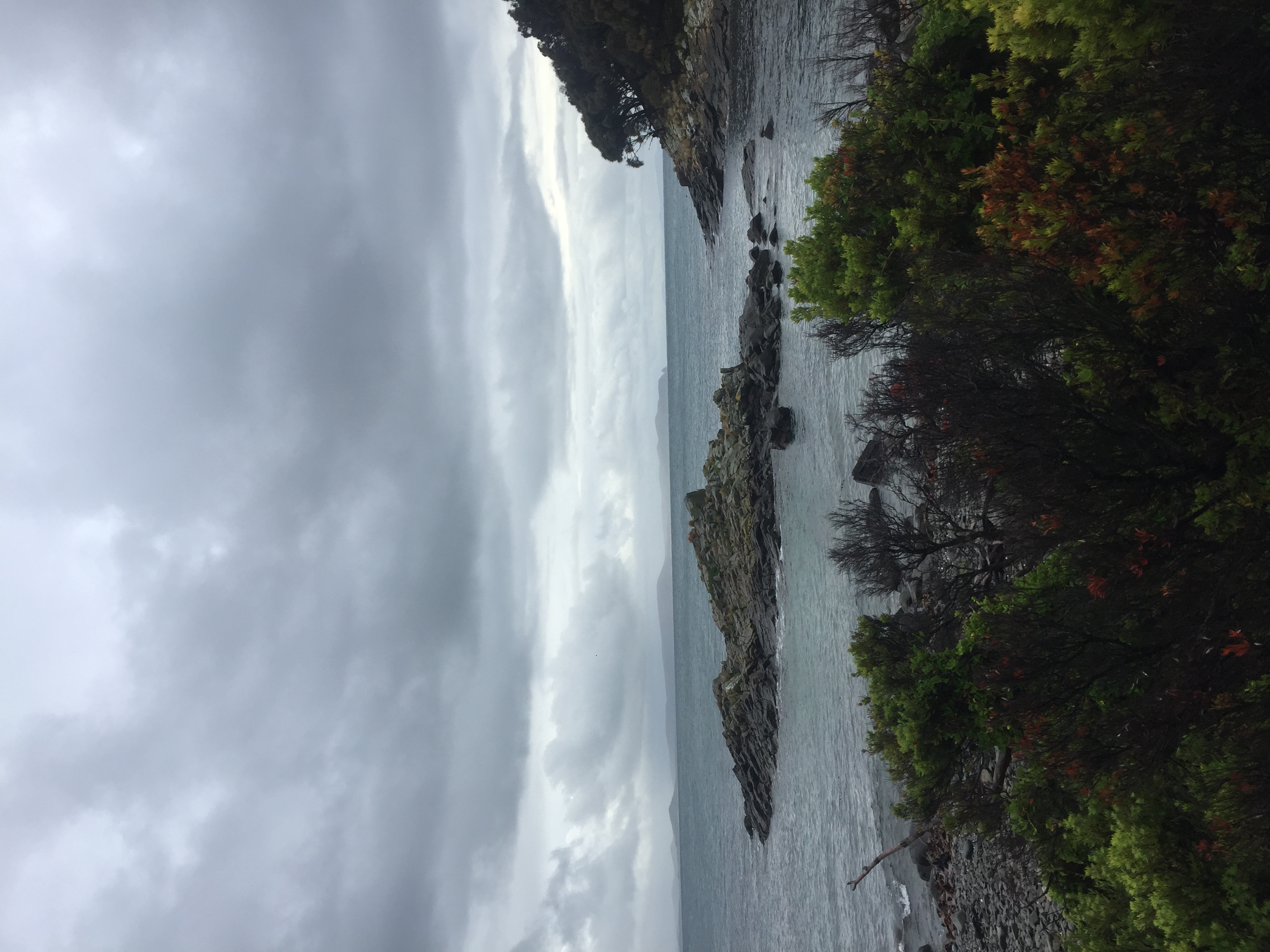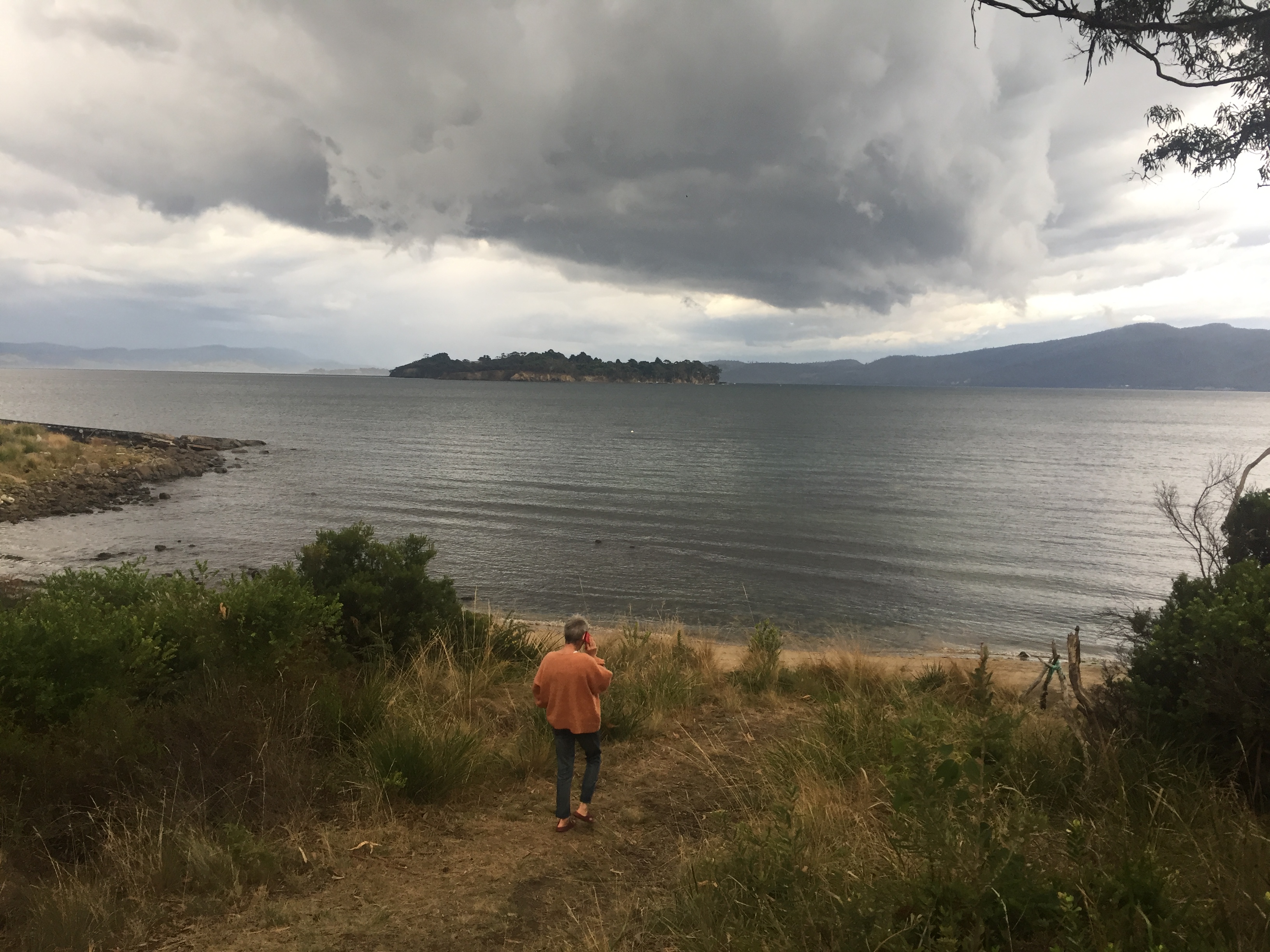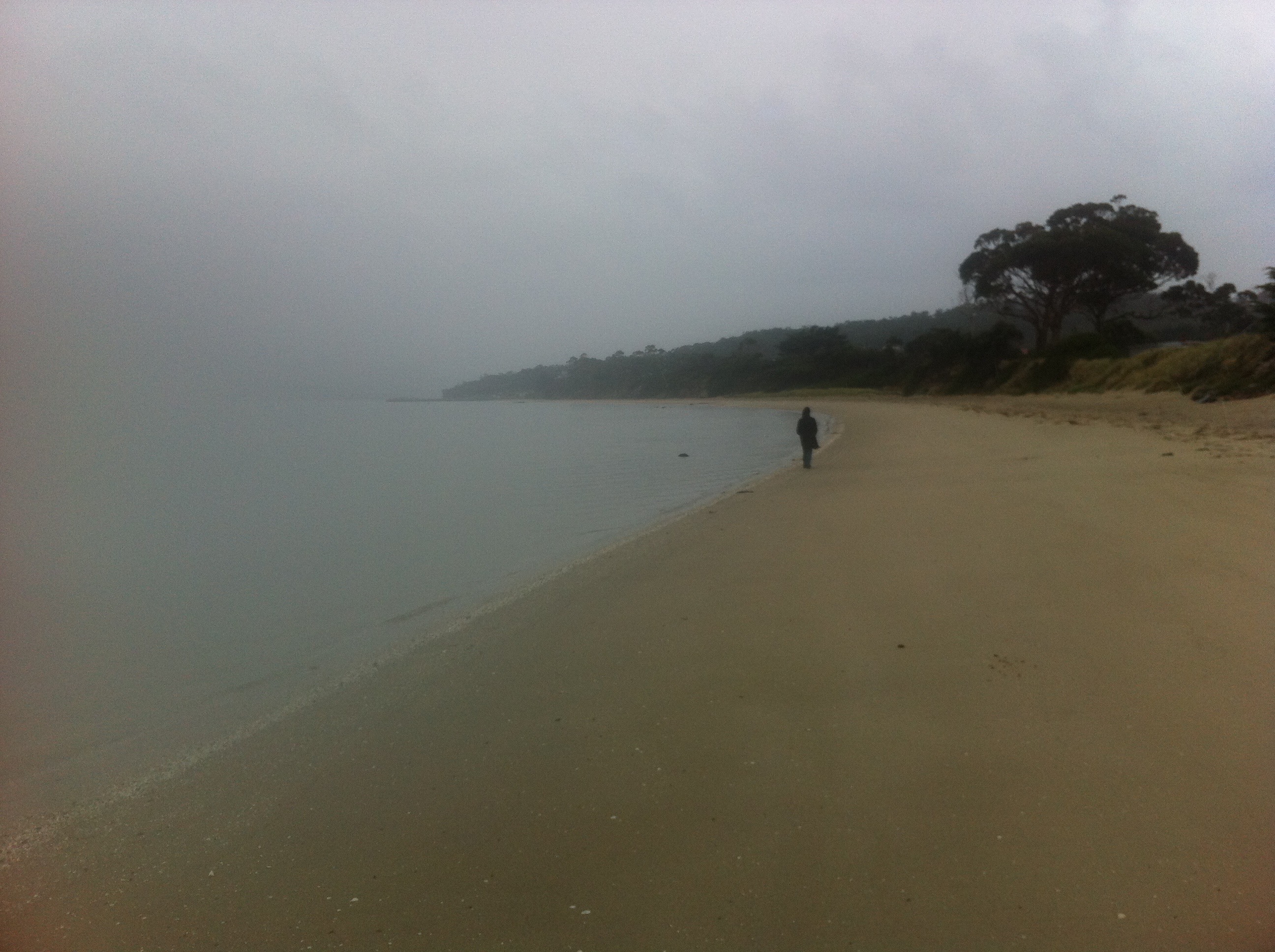Some more poems 1
Ken Bolton


At the airport I suddenly feel full of life
an adventure, Cath
a couple of steps ahead
as we head out across the tarmac, to the plane
a building in the distance shines
glass and aluminium, I guess—a few miles away—
a sudden flash, city and hills behind.
I haven't felt healthier. Young again.
[The virus.]
In my hand a book
Jumping the Queue. Ha ha. Strange
times. For everybody. What
everybody is thinking.
To Hobart, and
Pat and Chris, and Bruny. Deb
will join us. Or maybe not,
I hear now, as restrictions set in
quelling movement interstate.
An email from Kurt
hunkered down, bunkered down
'settling in'? for a long season
beachside, the South Coast,
Currarong—painting, reading, swimming—painting again—
till it gets too cold. Anna—
our Anna, not Kurt's—anxious
that we are not looking after ourselves. We must appear
old, older than we think. One mum
is all you get / (or) is all I've got, might be her thought
Jumping the Queue is very good—
crisp, clear, its thinking good
drily English in
the best way
At Pat and Chris's I have the familiar rush—
a sense of adventure, enthusiasm.
Two days with them—a lot of
talk, exchange of
similar opinions.
A tonic effect.
A lift with a friend to the island
(Adrian)
Hobart is behind us.
We unpack & walk to the pub
& Deb arrives a half hour after.
Fish and chips for all—at
The Bruny Hotel—then back to
our little house, talk of
quarrantine, self-isolating, of the kids etcetera.
And the days begin
of walks, along the beaches or
up the hill, the green of the island
the fabulous skies shades of
oystery, silvery grey, & blue
& the blue of the sea, the striking island opposite
hard & dark in the blue surround
a little bit Böcklin, I always think,
tho it is some days this time
before I think that. (Who thinks 'Böcklin' any more,
& why would they say it? And who would say it
now at just this moment?) The next day
we walk Adventure Bay beach, with Deb
the long line of wave, breaking, as a mile-length curl of
glass-green & foam, sunlight smiling thru
the moment before its collapse: a long, ongoing roar
as the wave breaks in its sudden, singular dump
a menthol, too-quick-to-be-soothing, sucking noise—that follows
as the water recedes, swift & flat, endless minutely broken
shell tumbling with it, a rattle sound
I am amused again at the dottorels—had
forgotten them—but here they are. Is it their season,
they seem not to be around?
And they appear, five
up one end of the beach—doing their amusing run.
Catch them on 'film' for the kids: my phone.
Email it later that night
A dud Stuart MacBryde. Mary Wesley I have finished.
A good Jonathan Coe—& a Spanish author
Pat has lent
The pubs close: the island pub—
new rules apply to movement—& suddenly,
overnight, the tourists are gone, the caravans
towed away—we're alone.
Gulls,
the eagle, the trees & sand—the trees, some
of them, in die-back, silver & dramatic, & slender—
a little too Elioth Gruner, is he the one?
or Blamire Young, or Davies? at any rate
very 'fine', in parts —('delicate')—
or, getting along just fine: healthy, burgeoning
Fewer boats at the jetty
A mark shows some squidding has been happening,
Cath notes. Deb does the four hour walk
over Mt Mangana—alone thru the tall, tall trees
the temperate rain forest at its top
& we pick her up in the afternoon—
a little cold, tired—
the Pardelope Café, Adventure Bay. Walk
the local beach near here—with Lorraine—
the mandated couple of metres between us—
a few lengths, back & forth—
& will see her again on Thursday,
our 'quarantine time' up, done.
Coffee with Adrian & Kirsty.
A few more days
& Deb too is gone.
And later that day
flights are cancelled—so our wondering, Are we
here for long, should we stay perhaps,
decided for us. Bruny will be home.
I'm reading Jonathan Coe's
Middle England—a book about another country's problems.
Their problems of about a year ago.
Their problems are worse now, things having gone
as the novel predicted. Having gone as the world saw they would
But as our own are versions of theirs
more or less, there is not a lot of comfort in it
And the book is 'nice' but an essay really
rather than a novel. I'll read it nonetheless.
To the end, I mean. It suffers from what it diagnoses.
Niceness, a muted lack of thrust
"Maybe it was time to learn," I quote Coe himself,
"that there were some aesthetic principles
that should never be abandoned or diluted, & that
it was not necessarily a noble thing
to gravitate towards the centre ground
in pursuit of a quiet life…" I add the word "aesthetic"—
Coe was just talking 'principles'.
But there it is, a novel that is an essay, the
characters, sometimes real enough, forced to
frogmarch, strike out stiffly, in the grip of an
illustrative logic; yet an essay … that comes to no point—
in the interests of a novel's verisimilitude.
Which reminds me
I have to write some art criticism.
Which should not be nice, should not have muddle
but be sharp. A weird thing to be doing,
it strikes me, on an island
so far away from that art.
('Something to be going on with.')
All action, on the art front,
suspended presumably.

